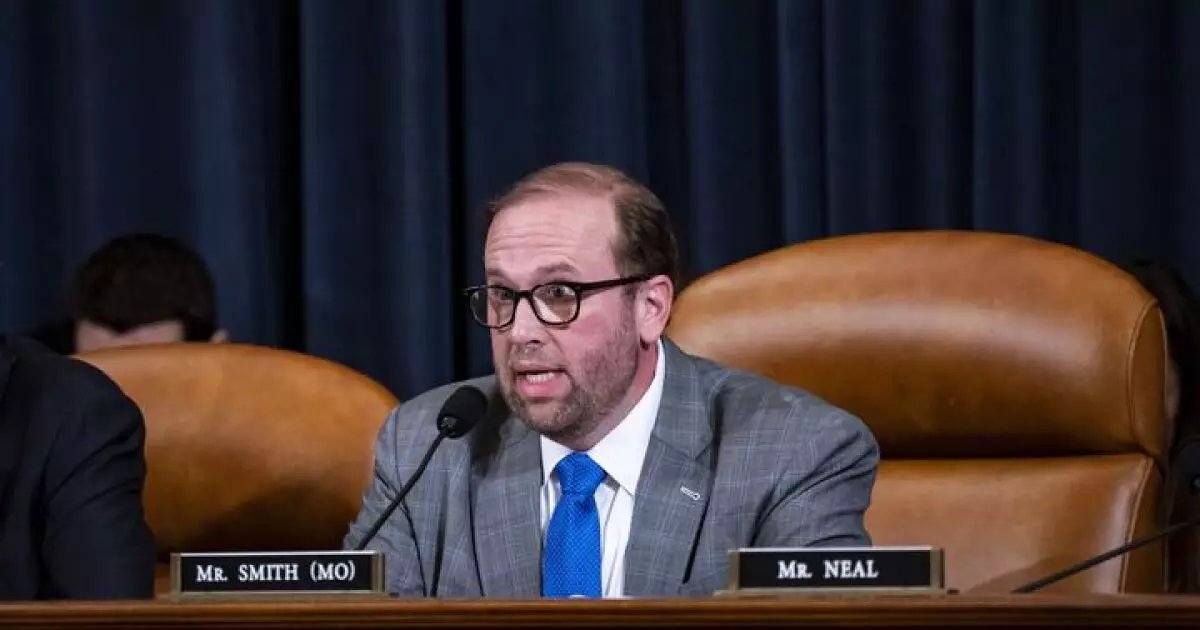The 119th Congress has ignited a pivotal debate centered around the future of the Tax Cuts and Jobs Act (TCJA). The crux of this discussion lies in a fundamental clash of ideologies: should policymakers prioritize national debt reduction or strive for economic growth? This debate bears significant implications, particularly for the municipal finance sector, as advocates worry about the potential threats to tax-exemption policies which could arise from attempts to offset revenue deficits due to tax cuts. As Congress ventures into this contentious terrain, the stakes are undeniably high.
During a recent House Ways and Means Committee meeting, Chairman Jason Smith highlighted the previously touted benefits of the TCJA, arguing that the tax cuts spurred substantial economic growth during the first Trump administration. He attributed decreased unemployment rates and an unprecedented decline in poverty to these tax changes, asserting that they served as the “rocket fuel” needed to lift the economy from the stagnation seen during the Obama administration. This confident assertion presents a clear and optimistic portrayal of the TCJA’s impact, celebrating the contributions to American workers’ incomes and the broader economy.
However, this rosy outlook faces formidable opposition from the Democratic minority, which raises concerns about the sustainability of such growth, emphasizing the ballooning national debt incurred as a consequence. Ranking Democrat Richard Neal underscored the contradictions in proposing further tax cuts while simultaneously claiming to combat national debt, highlighting an apparent disconnect in fiscal policy logic: “How can you attack the national debt while adding to it by $4 trillion through tax cuts?” This perspective illustrates a fundamental skepticism regarding whether short-term economic gains are worth the long-term financial burdens placed on future generations.
The discussion surrounding the TCJA also critically impacts the municipal finance community, which has begun to voice concerns over two specific provisions that pose challenges to their interests. The elimination of advance refunding for tax-exempt bonds and the imposition of a $10,000 cap on state and local tax deductions (SALT) have raised alarms among muni advocates. These provisions not only affect municipalities’ ability to finance infrastructure projects but also complicate taxpayers’ financial situations at the local level, potentially stunting economic growth amid already unpredictable fiscal conditions.
Despite partisan differences, there exists a degree of agreement on certain aspects of the TCJA. Both sides seem aligned on maintaining steady individual tax rates for middle-class families, yet divergent views on corporate tax structures and the intricacies of SALT deductions remain contentious. The prospect of the TCJA’s extension hinges on negotiations between these opposing viewpoints, making the upcoming political maneuvering crucial.
To bolster their arguments, Republicans populated witness testimonies at the committee hearings with small business owners and concerned parents, emphasizing the importance of keeping the Child Tax Credit intact and extending the Section 199A deduction for qualified business income. Such testimonies are designed to present a collective voice supporting the extension of the existing tax framework. Conversely, Democrats countered with a call for increased taxation on the wealthy and corporations to alleviate the fiscal strain on the nation, echoing sentiments from prominent figures within their party.
Representative Lloyd Doggett articulated this urgency in advocating for tax increases on higher-income individuals, citing concerns about how unchecked corporate tax policies exacerbate inequalities and contribute to the national debt. His remarks underline a growing recognition among some Republicans of the pressing need to confront fiscal realities, suggesting an evolving dialogue within party lines about tax legislation and its broader implications.
As debates within the House Ways and Means Committee unfold, they inevitably feed into larger conversations about the national debt ceiling. The intricate relationship between tax policy and national debt will take center stage as Congress grapples with the repercussions of their decisions on the nation’s credit rating. This issue not only tests the resolve of lawmakers but also presents the opportunity for a more nuanced discussion about fiscal responsibility in an increasingly complex economic landscape.
In sum, the ongoing discourse about the future of the TCJA reveals deeply entrenched ideological divides but also hints at potential avenues for bipartisan dialogue. The ramifications of these discussions could reshape not just tax policy but the financial future of American municipalities and citizens alike. As the 119th Congress progresses, all eyes will remain on the Ways and Means Committee as they work toward solutions balancing equity, revenue, and economic growth.

